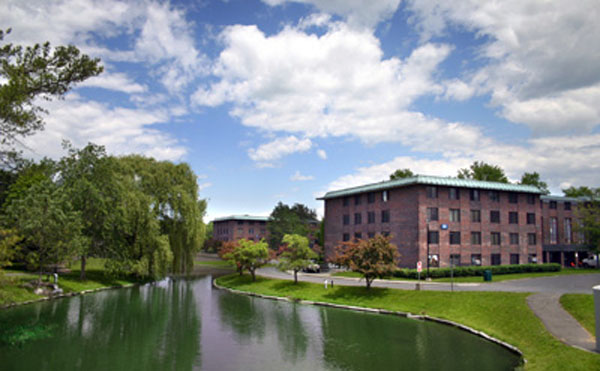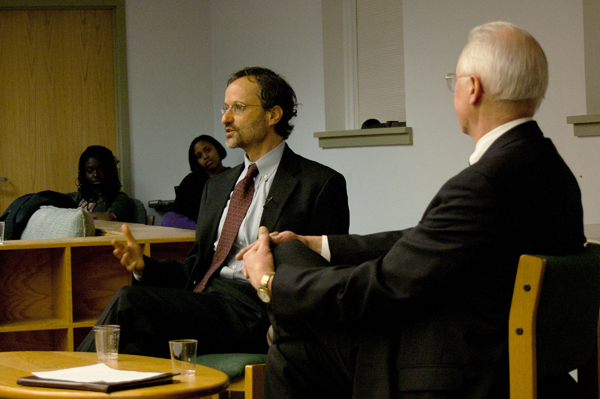Room inspections will not change despite the recent violent incident on campus, according to the Department of Residence Life.
Some students had questions following an incident last week where a first-year resident of Deyo Hall, armed with a katana, took several other students hostage in his suite. Would R.A.s be inspecting dormitory rooms more closely, looking for weapons? Would closer investigations, if they occurred, invade students’ privacy? Just what was the policy if a weapon was found in a student’s room?
The current policy, outlined by Megan Niederhauser, a resident assistant in Lenape Hall, is to have two people inspecting rooms for health and safety violations: an R.A. and either the building’s Resident Director or Community Development Assistant. The main concern during these inspections is fire hazards—does a student have a lamp or extension cord that could be a hazard? Are there any damages to facilities, such as a broken window? If the room is what Niederhauser referred to as “a disaster area,” where the floor cannot be seen, students will be advised to clean up.
If anything appears suspicious or as though something is being hidden, a student can be asked to open a drawer or closet, or move obstructing objects, so the inspectors can see what might be in or behind it. If the student is not in the room, nothing can be done, for privacy reasons. If, however, a potentially lethal weapon is found, the University Police Department is immediately called.
“I’d call UPD first and then the R.D. on call, and then I’d write a report and e-mail it to my R.D. so that he knew what was going on,” Niederhauser said.
The Director of Residence Life, Corinna Inna, confirmed that nonlethal weapons, such as fencing equipment, are allowed, and that no changes would be made to the system. “We’re just going to continue on as we normally would,” she said. She felt any changes to the current policy in the wake of the incident would anger students and negatively impact their privacy.
Some students, like Niederhauser, echoed Inna’s concerns about more invasive inspections and student safety. “That’s where it gets kind of sticky. ‘Cause you want your privacy, but everyone else wants to be safe.”
Other students felt the current system was fair, if flawed. Sarah Prosser, second-year resident in Deyo, said she liked that the system doesn’t discriminate and that if one person can’t have something, no one can, not even an R.A. She says she still feels safe in her building, despite knowing a fellow resident had a weapon, because it was only “one kid,” and because the dorm is surrounded by a campus full of people. If it had happened in an apartment building, a more private space, she said, she would feel a lot less safe.
Third-year Stephanie Zabinski, Prosser’s roommate, thought it was “kind of silly” that students could hide things so easily. When asked if she felt less safe knowing a student had kept a weapon on campus, she said she was unconcerned.
“I trust people in college to be more or less smart about these things,” Zabinski said.

